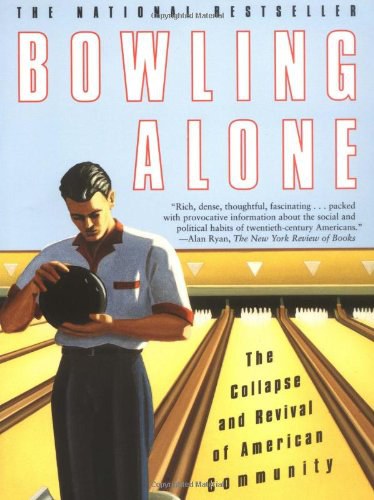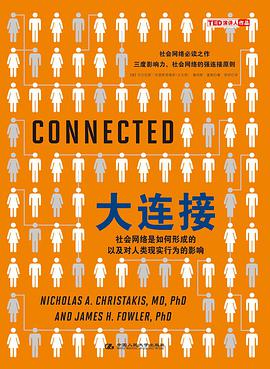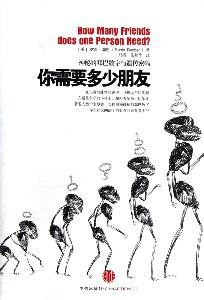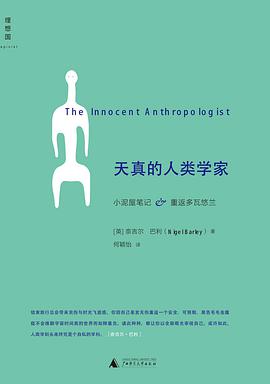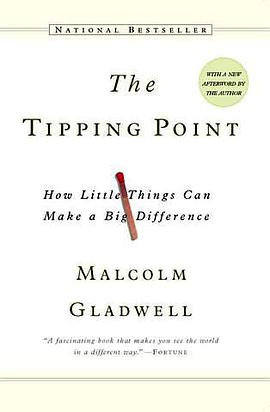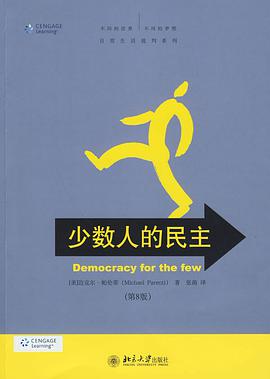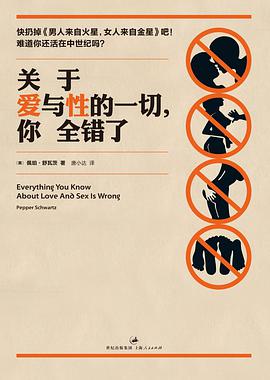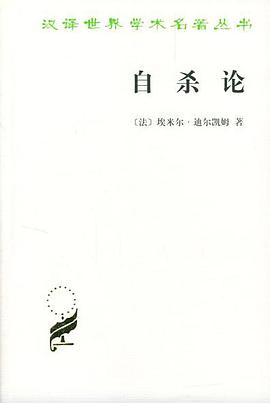社会学
人类动物园 豆瓣 Goodreads
The Human Zoo:A Zoologist's Study of the Urban Animal
8.3 (18 个评分)
作者:
德斯蒙德·莫利斯
译者:
何道宽
复旦大学出版社
2010
囚——一个人走向了超大型部落,便是这样的结果。莫利斯说,自有都市以来,便是如此。
现代都市人口繁盛、规模巨大。无以复加的超级部落问题重重:战争、暴力、性紊乱、恋物癖……《人类动物园》用冷峻的事实揭示现代都市人的宿命:都市并非丛林天地,而是动物园世界,从此,人被囚禁,人性被扭曲。
疑问由此而生:为什么会这样?会不会有出路?
这些问题也困扰着莫利斯,上世纪60年代末的危机——核战争、环境恶化、人口剧增——如今依然,忧虑和恐惧挥之不去。阅读《人类动物园》将是一场探险:你被迫承受不快的现实,同时也会感受到“希望”。
现代都市人口繁盛、规模巨大。无以复加的超级部落问题重重:战争、暴力、性紊乱、恋物癖……《人类动物园》用冷峻的事实揭示现代都市人的宿命:都市并非丛林天地,而是动物园世界,从此,人被囚禁,人性被扭曲。
疑问由此而生:为什么会这样?会不会有出路?
这些问题也困扰着莫利斯,上世纪60年代末的危机——核战争、环境恶化、人口剧增——如今依然,忧虑和恐惧挥之不去。阅读《人类动物园》将是一场探险:你被迫承受不快的现实,同时也会感受到“希望”。
Butch/Femme: Inside Lesbian Gender 豆瓣
作者:
Sally R. Munt
1998
Bowling Alone 豆瓣 Goodreads
作者:
Robert D. Putnam
Touchstone Books by Simon & Schuster
2001
- 8
Amazon.com Review
Few people outside certain scholarly circles had heard the name Robert D. Putnam before 1995. But then this self-described "obscure academic" hit a nerve with a journal article called "Bowling Alone." Suddenly he found himself invited to Camp David, his picture in People magazine, and his thesis at the center of a raging debate. In a nutshell, he argued that civil society was breaking down as Americans became more disconnected from their families, neighbors, communities, and the republic itself. The organizations that gave life to democracy were fraying. Bowling became his driving metaphor. Years ago, he wrote, thousands of people belonged to bowling leagues. Today, however, they're more likely to bowl alone:
Television, two-career families, suburban sprawl, generational changes in values--these and other changes in American society have meant that fewer and fewer of us find that the League of Women Voters, or the United Way, or the Shriners, or the monthly bridge club, or even a Sunday picnic with friends fits the way we have come to live. Our growing social-capital deficit threatens educational performance, safe neighborhoods, equitable tax collection, democratic responsiveness, everyday honesty, and even our health and happiness.
The conclusions reached in the book Bowling Alone rest on a mountain of data gathered by Putnam and a team of researchers since his original essay appeared. Its breadth of information is astounding--yes, he really has statistics showing people are less likely to take Sunday picnics nowadays. Dozens of charts and graphs track everything from trends in PTA participation to the number of times Americans say they give "the finger" to other drivers each year. If nothing else, Bowling Alone is a fascinating collection of factoids. Yet it does seem to provide an explanation for why "we tell pollsters that we wish we lived in a more civil, more trustworthy, more collectively caring community." What's more, writes Putnam, "Americans are right that the bonds of our communities have withered, and we are right to fear that this transformation has very real costs." Putnam takes a stab at suggesting how things might change, but the book's real strength is in its diagnosis rather than its proposed solutions. Bowling Alone won't make Putnam any less controversial, but it may come to be known as a path-breaking work of scholarship, one whose influence has a long reach into the 21st century. --John J. Miller --This text refers to an out of print or unavailable edition of this title.
From Publishers Weekly
"If you don't go to somebody's funeral, they won't come to yours," Yogi Berra once said, neatly articulating the value of social networks. In this alarming and important study, Putnam, a professor of sociology at Harvard, charts the grievous deterioration over the past two generations of the organized ways in which people relate to one another and partake in civil life in the U.S. For example, in 1960, 62.8% of Americans of voting age participated in the presidential election, whereas by 1996, the percentage had slipped to 48.9%. While most Americans still claim a serious "religious commitment," church attendance is down roughly 25%-50% from the 1950s, and the number of Americans who attended public meetings of any kind dropped 40% between 1973 and 1994. Even the once stable norm of community life has shifted: one in five Americans moves once a year, while two in five expect to move in five years. Putnam claims that this has created a U.S. population that is increasingly isolated and less empathetic toward its fellow citizens, that is often angrier and less willing to unite in communities or as a nation. Marshaling a plentiful array of facts, figures, charts and survey results, Putnam delivers his message with verve and clarity. He concludes his analysis with a concise set of potential solutions, such as educational programs, work-based initiatives and funded community-service programs, offering a ray of hope in what he perceives to be a dire situation. Agent, Rafe Sagalyn. 3-city tour; 20-city radio satellite tour. (June)
Copyright 2000 Reed Business Information, Inc. --This text refers to an out of print or unavailable edition of this title.
Few people outside certain scholarly circles had heard the name Robert D. Putnam before 1995. But then this self-described "obscure academic" hit a nerve with a journal article called "Bowling Alone." Suddenly he found himself invited to Camp David, his picture in People magazine, and his thesis at the center of a raging debate. In a nutshell, he argued that civil society was breaking down as Americans became more disconnected from their families, neighbors, communities, and the republic itself. The organizations that gave life to democracy were fraying. Bowling became his driving metaphor. Years ago, he wrote, thousands of people belonged to bowling leagues. Today, however, they're more likely to bowl alone:
Television, two-career families, suburban sprawl, generational changes in values--these and other changes in American society have meant that fewer and fewer of us find that the League of Women Voters, or the United Way, or the Shriners, or the monthly bridge club, or even a Sunday picnic with friends fits the way we have come to live. Our growing social-capital deficit threatens educational performance, safe neighborhoods, equitable tax collection, democratic responsiveness, everyday honesty, and even our health and happiness.
The conclusions reached in the book Bowling Alone rest on a mountain of data gathered by Putnam and a team of researchers since his original essay appeared. Its breadth of information is astounding--yes, he really has statistics showing people are less likely to take Sunday picnics nowadays. Dozens of charts and graphs track everything from trends in PTA participation to the number of times Americans say they give "the finger" to other drivers each year. If nothing else, Bowling Alone is a fascinating collection of factoids. Yet it does seem to provide an explanation for why "we tell pollsters that we wish we lived in a more civil, more trustworthy, more collectively caring community." What's more, writes Putnam, "Americans are right that the bonds of our communities have withered, and we are right to fear that this transformation has very real costs." Putnam takes a stab at suggesting how things might change, but the book's real strength is in its diagnosis rather than its proposed solutions. Bowling Alone won't make Putnam any less controversial, but it may come to be known as a path-breaking work of scholarship, one whose influence has a long reach into the 21st century. --John J. Miller --This text refers to an out of print or unavailable edition of this title.
From Publishers Weekly
"If you don't go to somebody's funeral, they won't come to yours," Yogi Berra once said, neatly articulating the value of social networks. In this alarming and important study, Putnam, a professor of sociology at Harvard, charts the grievous deterioration over the past two generations of the organized ways in which people relate to one another and partake in civil life in the U.S. For example, in 1960, 62.8% of Americans of voting age participated in the presidential election, whereas by 1996, the percentage had slipped to 48.9%. While most Americans still claim a serious "religious commitment," church attendance is down roughly 25%-50% from the 1950s, and the number of Americans who attended public meetings of any kind dropped 40% between 1973 and 1994. Even the once stable norm of community life has shifted: one in five Americans moves once a year, while two in five expect to move in five years. Putnam claims that this has created a U.S. population that is increasingly isolated and less empathetic toward its fellow citizens, that is often angrier and less willing to unite in communities or as a nation. Marshaling a plentiful array of facts, figures, charts and survey results, Putnam delivers his message with verve and clarity. He concludes his analysis with a concise set of potential solutions, such as educational programs, work-based initiatives and funded community-service programs, offering a ray of hope in what he perceives to be a dire situation. Agent, Rafe Sagalyn. 3-city tour; 20-city radio satellite tour. (June)
Copyright 2000 Reed Business Information, Inc. --This text refers to an out of print or unavailable edition of this title.
逃避自由 豆瓣
8.8 (38 个评分)
作者:
[美] 埃里希·弗罗姆
译者:
刘林海
国际文化出版公司
2002
- 8
精神分析学说是奥地利精神病医生、心理学家弗洛伊德在20世纪初创立的。弗洛伊德最初是作为神经病学家和精神科医生来从事研究的。其研究对象主要是歇斯底里症患者。他发现歇斯底里症的根源主要不是由于生理的原因,而是在于深刻内在的心理因素。他将这种存在的心理因素归结为儿童期被压抑的性意识,并由此创立了“无意识性本能学说”,认为神经症的发作就是性意识的长期压抑最后总爆发的结果。弗洛伊德将他的发现加以总结,形成了一种全新的、最富创见的心理学说,并将这一学说全面推广到哲学、社会、宗教、文化领域,形成了一个庞大的思想体系。
埃里希·弗罗姆一直致力于研究现代人的性格结构及有关心理因素和社会因素相互作用的问题。这本《逃避自由》是这项研究的一部分。目前的政治发展及其对现代化最伟大的成就——个性及人格的独一无二性的潜在威胁,使他决定中断大范围的研究,集中精力专门研究对现代文和社会危机最要紧的一个方面,即,自由对现代人的含义。
埃里希·弗罗姆一直致力于研究现代人的性格结构及有关心理因素和社会因素相互作用的问题。这本《逃避自由》是这项研究的一部分。目前的政治发展及其对现代化最伟大的成就——个性及人格的独一无二性的潜在威胁,使他决定中断大范围的研究,集中精力专门研究对现代文和社会危机最要紧的一个方面,即,自由对现代人的含义。
大连接 豆瓣
Connected: The Surprising Power of Our Social Networks and How They Shape Our Lives
作者:
[美] 尼古拉斯•克里斯塔基斯(Nicholas A. Christakis)
/
[美] 詹姆斯•富勒(James H. Fowler)
译者:
简学
中国人民大学出版社
2013
- 1
[内容简介]
1. 本书是继《六度分隔》之后,社会科学领域最重要的作品。作者发现:相距三度之内是强连接,强连接可以引发行为;相聚超过三度是弱连接,弱连接只能传递信息。
2. 本书讲述了社会网络是如何形成的以及对人类现实行为的影响,如对人类的情绪、亲密关系、健康、经济的运行和政治的影响等,并特别指出,三度影响力(即朋友的朋友的朋友也能影响到你)是社会化网络的强连接原则,决定着社会化网络的功能。
3. 本书提出大量看似不可思议的,却又得到实践检验的观点:肥胖是可以传染的;婚姻可以延长人们的寿命;人们会仅仅因为别人自杀就决定自杀;大多数人的坚果过敏症是由于心理因素造成的;你所以为的自由恋爱其实是包办婚姻……
[编辑推荐]
1. 每一个快乐的朋友,让你也快乐的概率大约增加9%。每一个不快乐的朋友,让你也快乐的概率减少7%。不仅仅是朋友,甚至朋友的朋友的朋友也会对你的快乐产生影响力。我们所做或所说的任何事情,都会在网络上泛起涟漪。本书作者提出:“三度影响力,社会网络的强连接原则”。这一观点开启了社会化网络研究的新篇章,成为继六度分隔理论后,社会网络研究领域最具影响力的发现。
2. 本书的两位作者都是研究社会网络的权威专家,他们所做的“肥胖也可以传染”的研究与论断,曾经引起业内广泛关注。作者尼古拉斯•克里斯塔基斯还在2009年,被《时代周刊》评选为“全球最具影响力100人”。
3.北京大学计算机系教授、网络与信息系统研究所所长李晓明,上海交通大学长江学者特聘教授、上海交通大学致远学院常务副院长汪小帆,中国传媒大学教授沈浩,清华大学计算机系副教授唐杰,中国互联网发展的重要参与者、知名IT评论人谢文,北京云基地首席顾问、云华时代智能科技有限公司董事长郭昕,中国社科院信息化研究中心秘书长、《互联网周刊》主编姜奇平,海银资本合伙人、互联网研究专家王煜全倾情推荐。
1. 本书是继《六度分隔》之后,社会科学领域最重要的作品。作者发现:相距三度之内是强连接,强连接可以引发行为;相聚超过三度是弱连接,弱连接只能传递信息。
2. 本书讲述了社会网络是如何形成的以及对人类现实行为的影响,如对人类的情绪、亲密关系、健康、经济的运行和政治的影响等,并特别指出,三度影响力(即朋友的朋友的朋友也能影响到你)是社会化网络的强连接原则,决定着社会化网络的功能。
3. 本书提出大量看似不可思议的,却又得到实践检验的观点:肥胖是可以传染的;婚姻可以延长人们的寿命;人们会仅仅因为别人自杀就决定自杀;大多数人的坚果过敏症是由于心理因素造成的;你所以为的自由恋爱其实是包办婚姻……
[编辑推荐]
1. 每一个快乐的朋友,让你也快乐的概率大约增加9%。每一个不快乐的朋友,让你也快乐的概率减少7%。不仅仅是朋友,甚至朋友的朋友的朋友也会对你的快乐产生影响力。我们所做或所说的任何事情,都会在网络上泛起涟漪。本书作者提出:“三度影响力,社会网络的强连接原则”。这一观点开启了社会化网络研究的新篇章,成为继六度分隔理论后,社会网络研究领域最具影响力的发现。
2. 本书的两位作者都是研究社会网络的权威专家,他们所做的“肥胖也可以传染”的研究与论断,曾经引起业内广泛关注。作者尼古拉斯•克里斯塔基斯还在2009年,被《时代周刊》评选为“全球最具影响力100人”。
3.北京大学计算机系教授、网络与信息系统研究所所长李晓明,上海交通大学长江学者特聘教授、上海交通大学致远学院常务副院长汪小帆,中国传媒大学教授沈浩,清华大学计算机系副教授唐杰,中国互联网发展的重要参与者、知名IT评论人谢文,北京云基地首席顾问、云华时代智能科技有限公司董事长郭昕,中国社科院信息化研究中心秘书长、《互联网周刊》主编姜奇平,海银资本合伙人、互联网研究专家王煜全倾情推荐。
天真的人类学家 豆瓣 Goodreads
The Innocent Anthropologist
8.8 (206 个评分)
作者:
[英国] 奈吉尔·巴利
译者:
何颖怡
广西师范大学出版社
2011
- 7
本书诚实但又不失风趣地记录了作为人类学家的作者在非洲喀麦隆多瓦悠人村落两次进行田野工作的经历,将人类学家如何克服乏味、灾难、生病与敌意的真实田野生活拍案叫绝地呈现在读者面前。
不同于一般的人类学研究报告,这是一部令人捧腹不止的人类学笔记,透过幽默的笔调,读者看到了人类学者如何与研究对象进行互动,在互动中如何调整他的学术成见,以及田野工作上的琐事如何影响后来研究结果、研究的盲点与反思。因此不管是严肃的读者、无聊地只想打发时间或者是向往非洲原始部落的异国情调而蠢蠢欲动的旅人,巴利这本书绝对是一个有趣的选择。
不同于一般的人类学研究报告,这是一部令人捧腹不止的人类学笔记,透过幽默的笔调,读者看到了人类学者如何与研究对象进行互动,在互动中如何调整他的学术成见,以及田野工作上的琐事如何影响后来研究结果、研究的盲点与反思。因此不管是严肃的读者、无聊地只想打发时间或者是向往非洲原始部落的异国情调而蠢蠢欲动的旅人,巴利这本书绝对是一个有趣的选择。
The Tipping Point 豆瓣 Goodreads
8.0 (10 个评分)
作者:
[加拿大] 马尔科姆·格拉德威尔
Back Bay Book
2002
- 1
"The best way to understand the dramatic transformation of unknown books into bestsellers, or the rise of teenage smoking, or the phenomena of word of mouth or any number of the other mysterious changes that mark everyday life," writes Malcolm Gladwell, "is to think of them as epidemics. Ideas and products and messages and behaviors spread just like viruses do." Although anyone familiar with the theory of memetics will recognize this concept, Gladwell's The Tipping Point has quite a few interesting twists on the subject.
For example, Paul Revere was able to galvanize the forces of resistance so effectively in part because he was what Gladwell calls a "Connector": he knew just about everybody, particularly the revolutionary leaders in each of the towns that he rode through. But Revere "wasn't just the man with the biggest Rolodex in colonial Boston," he was also a "Maven" who gathered extensive information about the British. He knew what was going on and he knew exactly whom to tell. The phenomenon continues to this day--think of how often you've received information in an e-mail message that had been forwarded at least half a dozen times before reaching you.
Gladwell develops these and other concepts (such as the "stickiness" of ideas or the effect of population size on information dispersal) through simple, clear explanations and entertainingly illustrative anecdotes, such as comparing the pedagogical methods of Sesame Street and Blue's Clues, or explaining why it would be even easier to play Six Degrees of Kevin Bacon with the actor Rod Steiger. Although some readers may find the transitional passages between chapters hold their hands a little too tightly, and Gladwell's closing invocation of the possibilities of social engineering sketchy, even chilling, The Tipping Point is one of the most effective books on science for a general audience in ages. It seems inevitable that "tipping point," like "future shock" or "chaos theory," will soon become one of those ideas that everybody knows--or at least knows by name. --Ron Hogan, Amazon.com
For example, Paul Revere was able to galvanize the forces of resistance so effectively in part because he was what Gladwell calls a "Connector": he knew just about everybody, particularly the revolutionary leaders in each of the towns that he rode through. But Revere "wasn't just the man with the biggest Rolodex in colonial Boston," he was also a "Maven" who gathered extensive information about the British. He knew what was going on and he knew exactly whom to tell. The phenomenon continues to this day--think of how often you've received information in an e-mail message that had been forwarded at least half a dozen times before reaching you.
Gladwell develops these and other concepts (such as the "stickiness" of ideas or the effect of population size on information dispersal) through simple, clear explanations and entertainingly illustrative anecdotes, such as comparing the pedagogical methods of Sesame Street and Blue's Clues, or explaining why it would be even easier to play Six Degrees of Kevin Bacon with the actor Rod Steiger. Although some readers may find the transitional passages between chapters hold their hands a little too tightly, and Gladwell's closing invocation of the possibilities of social engineering sketchy, even chilling, The Tipping Point is one of the most effective books on science for a general audience in ages. It seems inevitable that "tipping point," like "future shock" or "chaos theory," will soon become one of those ideas that everybody knows--or at least knows by name. --Ron Hogan, Amazon.com
关于爱与性的一切,你全错了 豆瓣
Everything You Know about Love and Sex Is Wrong
6.9 (7 个评分)
作者:
[美] 佩珀·舒瓦茨
译者:
唐小达
上海人民出版社
2010
- 10
关于爱情与两性的话题,我们往往信奉一些未被证实的“真理”,这些所谓真理如果囫囵吞下,可能会给一个人的快乐心情和恋爱关系带来毁灭性的损伤。
本书作者即从众多的“真理”中筛选出了最“谬不可言”的25条,逐一提出质疑并进行论述,同时列举了大量社会学调查实例,这些无不在警醒我们,在爱与性的问题上我们原本错得是多么厉害。通过这些反思,让那些“在爱中的人们”睁开眼睛,打破谬论,用更坦诚、开放和宽容的心,迎接真正的幸福。
作者笔锋幽默犀利,论述直截了当,几令读者汗下。然而颠覆传统之后所呈现在读者面前的,的确句句皆为真知灼见。
本书作者即从众多的“真理”中筛选出了最“谬不可言”的25条,逐一提出质疑并进行论述,同时列举了大量社会学调查实例,这些无不在警醒我们,在爱与性的问题上我们原本错得是多么厉害。通过这些反思,让那些“在爱中的人们”睁开眼睛,打破谬论,用更坦诚、开放和宽容的心,迎接真正的幸福。
作者笔锋幽默犀利,论述直截了当,几令读者汗下。然而颠覆传统之后所呈现在读者面前的,的确句句皆为真知灼见。
学术与政治 豆瓣 Goodreads
Wissenschaft als Beruf und Politik als Beruf
9.6 (14 个评分)
作者:
韦伯
译者:
钱永祥
广西师范大学出版社
2004
- 5
本书收入韦伯最著名的两篇演讲:《学术作为一种志业》和《政治作为一种志业》。这两篇演讲,是韦伯去世不久,在战争与革命因袭下的德国“新”文化的重镇慕尼黑发表的,是20世纪思想的最重要文献。韦伯总摄他一生学术、思想、道德与政治的关怀,通过历史与社会学角度的比较分析,以及在道德价值层次上的批判反省,就学术知识与政治行动的性质、条件和限制,提出冷酷的界定和慷慨的呼吁。它们让读者沉痛地认识到近代人处境的艰难,也迫使读者用“英雄伦理”的态度,在“平实的眼前工作”中,把握住关系到人性尊严的一线希望。
马克斯·韦伯社会学文集 豆瓣
From Max Weber: Essays in Sociology
作者:
(德) 马克斯·韦伯 著
/
(美) 格特、米尔斯 编
译者:
阎克文
人民出版社
2010
- 6
《马克斯·韦伯社会学文集》是《马克斯·韦伯社会学文集》的首个中文译本。主要有四部分内容。第一部分是编者撰写的韦伯的生平及思想概述。另外三个部分是韦伯的著述,包括韦伯的三篇著名演讲,即“以政治为业”、“以学术为业”和“德国的资本主义与乡村社会”,前两篇表明了韦伯对于现代政治人和知识人的总体评价,以及韦伯本人的价值立场,堪称思想史上的不朽杰作,第三篇则是从宏观背景论述了以德国为核心的中欧地区在现代世界与西欧、北美形成的反差、原因以及可能的前景.对于理解现代资本主义文明在并非平衡发展历史中的意义具有独特的启发价值。除此之外的两个部分均选自《经济与社会》和《宗教社会学文集》,反映了韦伯方法论体系的基本框架,主要是通过对权力、群体、制度和文化传统的比较研究,论述观念与现实的因果关系以及互为因果的历史过程.揭示了历史发展是多元动力而不是单一或终极要素的作用。



